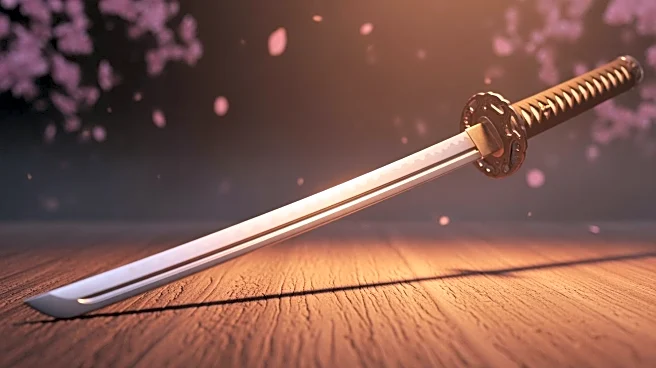What's Happening?
Junichi Okada, a Japanese actor, producer, and action choreographer, is at the forefront of Netflix's new series 'Last Samurai Standing.' The show, described as a blend of 'Squid Game' and 'Shogun,' is set
in 1878 Japan during the post-feudal period. It follows 292 samurai competing in a tournament for a prize of 100,000 yen, amidst a society that has outlawed their swords. Okada plays Shujiro Saga, a noble samurai fighting to save his sick family. The series has been praised for its intense fight scenes and production design, achieving high ratings on Rotten Tomatoes. Okada's involvement extends beyond acting, as he also serves as a producer and action choreographer, contributing to the show's authenticity and complexity.
Why It's Important?
The series 'Last Samurai Standing' is significant as it revitalizes the samurai genre by combining historical drama with modern survival game elements. It reflects the cultural shift in Japan during the late 19th century, highlighting the samurai's struggle in a rapidly modernizing society. The show's success could influence future productions, encouraging more historical dramas with innovative storytelling techniques. Additionally, Okada's multifaceted role in the series showcases the potential for actors to contribute creatively beyond traditional acting roles, potentially setting a precedent for future projects in the industry.
What's Next?
With the show's success, there is potential for a second season that may incorporate more superhuman elements from the original source material. The series has already garnered attention from notable figures like Hideo Kojima, indicating its impact on both the entertainment industry and cultural representation. As the series continues to gain popularity, it may inspire similar projects that blend historical narratives with contemporary themes, further expanding the global audience's interest in Japanese culture and history.
Beyond the Headlines
The series explores deeper themes of identity and cultural heritage, as the samurai navigate their place in a changing world. It raises questions about the preservation of tradition versus the necessity of adaptation, reflecting broader societal issues. The show's portrayal of violence and survival also prompts discussions on the ethical implications of entertainment that depicts historical struggles, potentially influencing how future productions approach similar topics.









